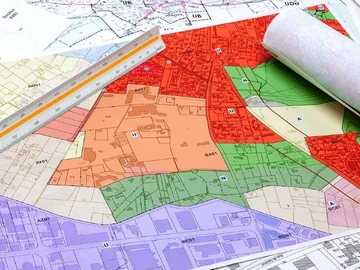A Title Deed is a registered legal document that confirms ownership of a specific piece of land or immovable property in Zimbabwe. It serves as proof that the named individual or individuals legally own the property and have the right to sell or transfer it.
Title Deeds are also known as:
- Deeds of Transfer
- Deeds of Grant
- Certificates of Registered Title
What Information Is Included on a Title Deed?
A Title Deed contains essential details about the property and its legal status, including:
-
A description of the property, including its size, exact location, and boundaries
-
The name(s) and national ID numbers of the legal owner(s); properties can have more than one owner
-
Any restrictions or encumbrances affecting the property, such as mortgage bonds or caveats
-
An official Deeds Registry Office seal, confirming that the deed is legally recorded
-
Any servitudes or access rights, such as shared driveways or pathways across the property
Why You Must Check for a Title Deed Before Buying
If you're buying property in Zimbabwe, one of the first things you should verify is whether the property:
- Is privately owned, and
- Has a valid Title Deed
This verification ensures:
- The property legally exists
- It is being sold by the rightful owner
- There are no hidden claims or restrictions that may affect your ownership rights
How to Confirm the Title Deed: Conduct a Deeds Search
A Deeds Search also known as a Title Search or due diligence is the official process to verify the property's legal ownership and status. This search is done through the Deeds Registry Offices in Zimbabwe.
Deeds Registry Office Locations:
- Harare: Century House, East, 38 Nelson Mandela Avenue
- Bulawayo: Tredgold Building, 2nd Floor, Room 222, Fort Street / L. Takawira Street
What a Deeds Search Will Reveal
The search will provide you with important legal and historical information about the property, including:
- The registered owner’s full name
- The property’s legal description, physical address, and size
- The date and reason for transfer (e.g., sale, inheritance, donation)
- Any mortgages, bonds, or encumbrances tied to the property
What Is an Encumbrance and Why Should You Check for It?
An encumbrance is any registered interest or claim that limits how the property can be used or transferred. This can include:
- Mortgages
- Caveats
- Easements or access rights
- Legal disputes or liens
Some encumbrances can be removed through legal procedures, but others may be permanent and could:
- Affect your ability to transfer or resell the property
- Lower the future value of the asset
- Introduce unwanted legal complications
Final Thoughts
Conducting a Deeds Search is a vital step in the property buying process. It helps you:
- Make an informed decision
- Avoid potential legal problems
- Protect your investment
Before you commit to purchasing any property, always confirm the existence and status of the Title Deed through the Deeds Office. It’s a small step that offers significant peace of mind.
 Continue with Facebook
Continue with Facebook
 Continue with Email
Continue with Email














